QuestionShelly, our 9 yr. old pooch,[Coco Puff], seems to love licking his paws [not pads!] often. He is basically an inside dog. We live in Fl. the ground where we walk him is grass covered with sand. There are ant hills, and the things one would expect to see in Florida, but I don't think he has ant/pest issues. He doesn't keep doing it till he bleeds, but my wife/bride of 10 yrs is nervous about it. I take the attitude of " don't worry!".
Who's right here?
AnswerHi Dave,
Thank you for writing to me regarding your Coco Puff!I am assuming that the condition you described has begun recently.
From your description, I can say without reservation, that your precious dog is suffering from allergies. It is likely the food he is eating but you would want to explore all the cleaning agents you use, the lawn care
products, new carpets, etc. I personally only use Dr. Bronners and vinegar to clean with. In the bathroom I use a small amount of chlorox and then clean over that with Dr. Bronners.
Food May Be the Cause of Your Dog's Skin Problems.
Food allergies or sensitivities are usually the last suspect in detecting the cause of a dog's skin problems. Most dogs are fed the same type of dog food for years, so the food is rarely suspected. Dogs, like humans, can
develop a sensitivity to any food or additive at any time.
It is estimated that 10 to 15 percent of all allergic skin diseases in dogs and cats is caused by food allergy.
Common Ingredients
Dog food is made up of a combination of ingredients. The most common ingredients that can cause problems in a dog include:
beef
chicken
corn
eggs
fish
lamb
milk
preservatives
pork
soy
wheat
whey
Symptoms
Itchy skin is the primary symptom a dog suffers from food sensitivities.
Other symptoms may include:
anal itching
ear inflammations
hair loss
licking front paws
loss of appetite
face rubbing
head shaking
These following symptoms may manifest but are rare:
asthma like symptoms
behavioral changes
diarrhea
flatulence
seizures
sneezing
vomiting
Steps of Prevention
Be sure to eliminate all the foods in the dog's diet that match the list above, and feed your dog a commericial or homemade diet consisting of ingredients your dog has never eaten before.
The homemade diet should consist of two parts starch and one part protein.
Although duck, salmon, soy, venison, and rabbit are suggested for the protein; and rice and potatoes for the starch; soy and rice are not always safe substitutes.
I generally recommends duck (or fish)and potato based foods for dogs.
You may be able to select a special commercial dog food blend that suits your dog's needs.
Whatever diet you choose for your dog, it should be the only food your dog ingests during the elimination period.
This means no table scraps, dog biscuits, dog bones, rawhide chews, vitamins, minerals or chewable heartworm pills. This elimination diet is only temporary and once you find out what your dog is allergic to you must
start to add other ingredients to make a complete meal for your dog.
If symptoms begin to improve during the elimination period, you can then re-introduce each of the eliminated food items one at a time. Each food should be tested for a week before another is introduced. This will allow you to pinpoint which foods may be causing problems if symptoms resurface.
Once the offensive food is discovered, then reading dog food labels should help you pinpoint a food that meets the needs of your dog. Although there are many hypoallergenic dog foods on the market, be sure to read the
labels carefully. Foods like Solid Gold Fish and Potato might work wonders for your dog. You can also try Spot's Stew, Avoderm, Venison, Rabbit, Paul Newman etc, or continue to make your own food at home. At
least that way the food is fresh and you know what has gone into it. A helpful book is Natural Health for Dogs and Cats by Dr. Pitcairn.
There is a site on dog health which includes great information about allergies and the best way to feed your dog. I urge you to spend some time studying the information that this wonderful site has to offer.
http://www.shirleys-wellness-cafe.com/animals.htm
I would also like to suggest that you have a complete thyroid panel done and don't accept a high or low normal reading, as normal. If it is not right in the middle, then ask for medication to bring it there.
Finally, you might consider having a consultation with Dr. Kruesi (do a search on google for his website). He is located in Vermont but does phone consultations. He may ask for additional tests in order to evaluate the reason for your dog's condition.
The best of luck with your dog's health. Once you find the cause of the problem, your dog will stop licking his paws.
Keep in touch and let me know how he is doing.
Regards,
Shelley Davis
www.bednbiscuit.com

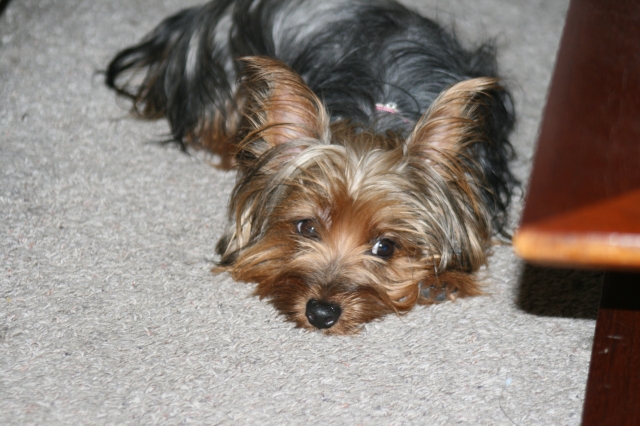 Agression towards kids
Question
Holly Daze
I have a 2.5yo Silky Terrier. She i
Agression towards kids
Question
Holly Daze
I have a 2.5yo Silky Terrier. She i
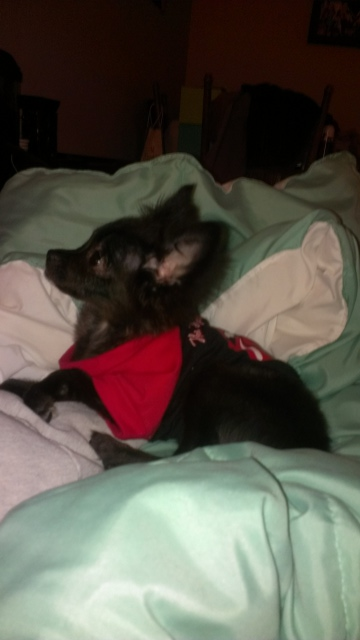 dog size
Question
raven
I have a 5 month old Pomeranian/C
dog size
Question
raven
I have a 5 month old Pomeranian/C
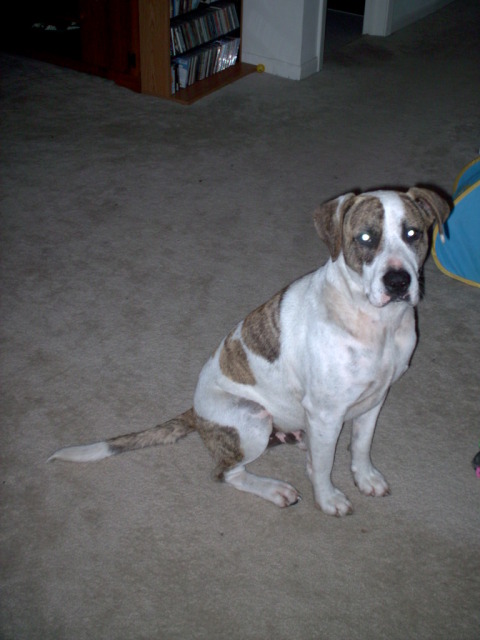 dog jumping fence
Question
dog
I have a 3 year old Staffordshire/Lab that
dog jumping fence
Question
dog
I have a 3 year old Staffordshire/Lab that
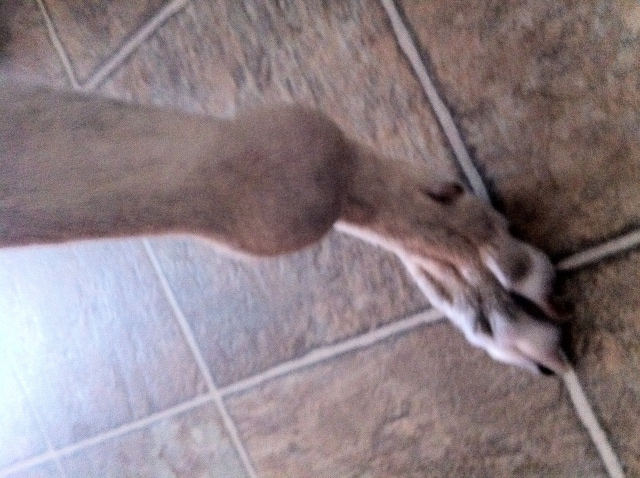 Growth on dogs right foreleg
Question
Foreleg 1 Foreleg 2
Hi Gary,
Our
Growth on dogs right foreleg
Question
Foreleg 1 Foreleg 2
Hi Gary,
Our
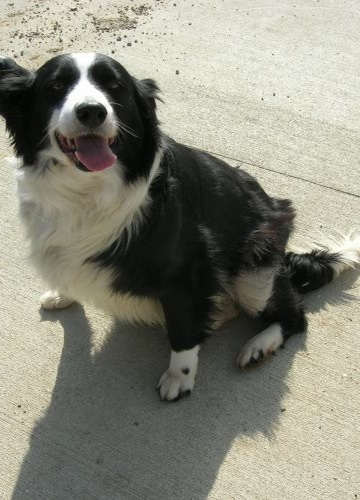 dog who growls and nips
Question
Ladybug
We adopted a rescue dog, Ladybu
dog who growls and nips
Question
Ladybug
We adopted a rescue dog, Ladybu